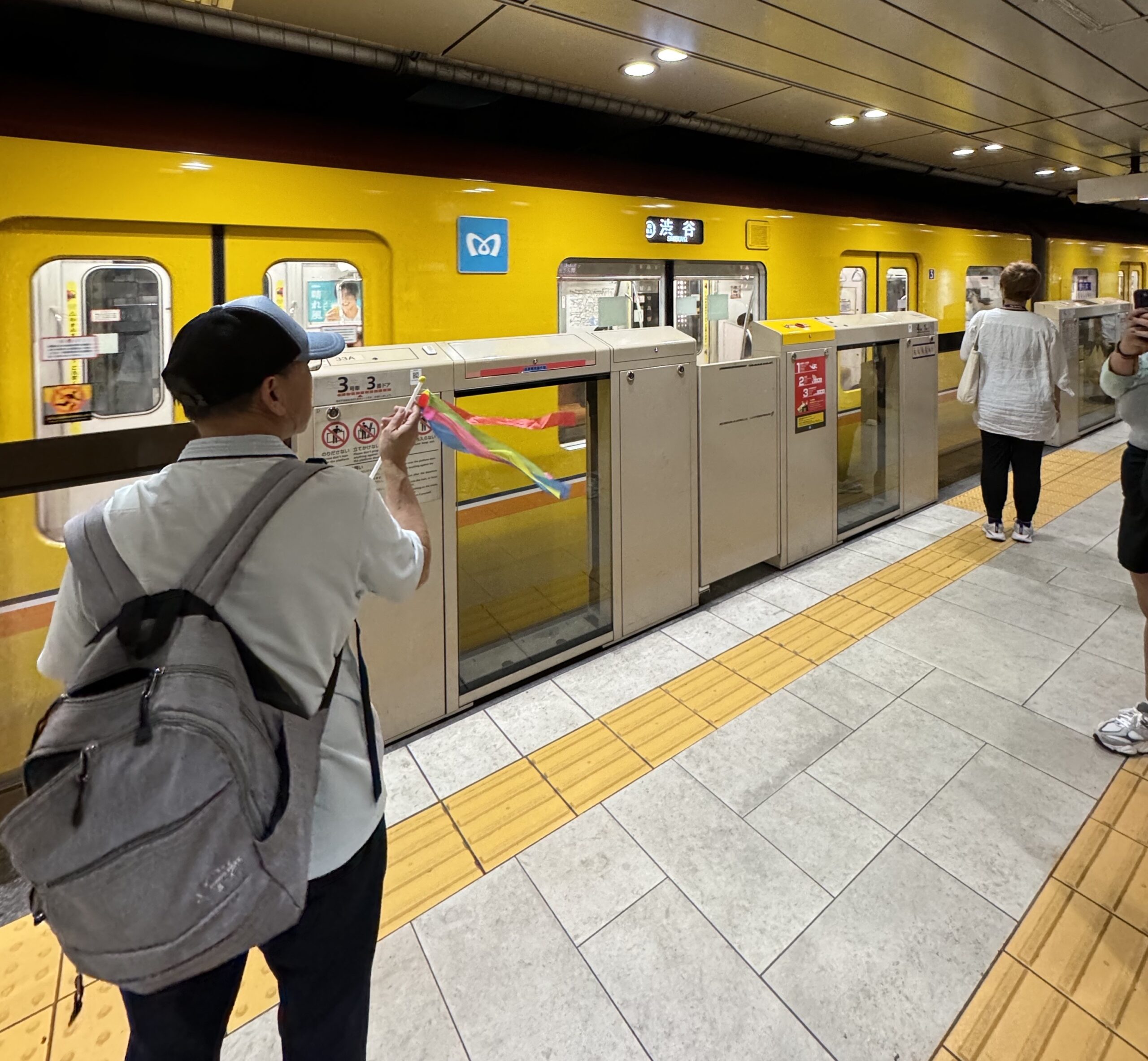
Losing personal items in a foreign country is never a good feeling. So when I lost my bag on the fifth day of SJMC Japan, my nerves began to set in a bit.
However, this panic did not consume me because Japan is renowned for its orderly society, respect for others and a strong sense of community. These values manifest in various aspects of daily life such as the exemplary practice of returning lost items.
During my stay in Tokyo, I had the opportunity to experience the cultural and societal factors that underpin this behavior through my firsthand experience of losing my backpack on the Marunouchi subway line.
At the time, the class had just started to get the hang of navigating through the Japan’s subway system. Our class was on a tight schedule that day and during that hectic afternoon, I inadvertently left a bag on a train.
Because of how crowded the train car had been, I had decided to put my backpack — with my laptop computer — on the rack above the seats. I had also been wearing a smaller bag at the time so when it was time to leave the subway car, my other bag slipped from my mind.
Once I got off the car and realized, however, it was too late. The bag, filled with essential items like a laptop, headphones and personal documents, was lost in the vast network of Tokyo’s public transportation system. Panic set in, but my classmates stayed hopeful thanks to Japan’s grounded societal values.
In Japan, the collective well-being is often placed above individual desires. This community-oriented mindset helps foster a sense of duty among individuals to maintain social harmony. The act of returning lost items is seen as a communal responsibility. This ensures that everyone contributes to a trustworthy and supportive environment. This cultural norm is deeply ingrained in Japanese society. This makes it second nature for people to report and return found items.
Thankfully, Japan’s lost and found system is a testament to its organizational efficiency and communal values. When I reported the lost bag to the nearest train station’s lost and found department, the staff were extremely helpful. Despite there being a slight language barrier, they guided me through the reporting process.


In Japan, police stations and train stations have dedicated departments for handling lost items, streamlining the process for both reporting and retrieving belongings. The process started off with getting a description of the lost item and figuring out what time and what train the item was last on. It is then followed by the staff phoning other stations to see if the bag had been returned. The system’s effectiveness is a testament to the cooperation of citizens who adhere to the practice of turning in lost items, thus reinforcing the trust and reliability of the system.
At the time, I was stressed because in many other places around the world, theft is a significant concern. However, Japan’s environment of safety and respect for others’ property meant that the bag was more likely to be handed in rather than stolen. Japan’s low crime rate is both a cause and effect of its societal values. The environment of safety and trust reduces the likelihood of theft, encouraging individuals to return lost items without fear of them being stolen. This low crime rate creates a virtuous cycle where honesty and respect for others’ property are the norms.
Throughout this experience, my trust in Japan’s police and legal system never wavered. The high level of trust in law enforcement in Japan is a cornerstone of its societal structure. Citizens believe that any crime, including theft, will be effectively addressed by the authorities. This trust in law enforcement is a critical component of the broader societal framework that supports order and respect. This trust helped ease my nerves and believe in the system’s ability to assist me.
In the end, my bag was turned in at the first station for the Maronuchi line. As I walked up to the station I felt every hair on my body prickle up and my stomach turned inside out.
Thankfully, as I opened the door, I immediately recognized my bag. The train officials followed a strict process to verify my bag was, indeed, mine. I needed to answer a series of personal questions and was even told beforehand if my answers did not match up 100 percent, my bag would not be returned. In spite of the fact that one wrong answer would potentially leave me bagless. I gambled on my Japanese language skills and was able to answer the train official’s questions without the need of a translator.
The practice of returning lost items in Japan is not just a matter of personal values but a reflection of a well-structured, community-oriented society. The combination of a strong sense of collective responsibility, efficient systems, low crime rates and trust in authorities creates an environment where returning lost items is the norm.
This cultural fabric of order, respect and consideration for others is a defining feature of Japanese society. This experience has offered valuable insights into how societal values can shape everyday behaviors.





